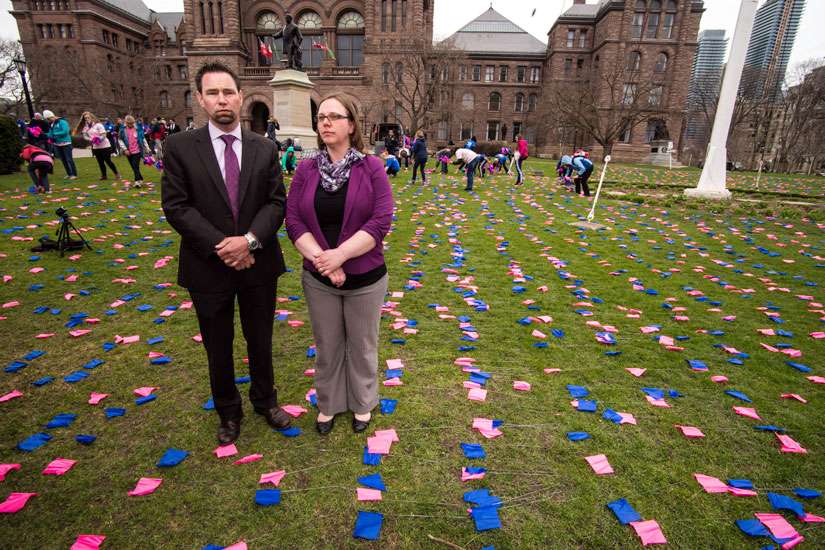The Association for Reformed Political Action and blogger Patricia Maloney claim regulations written into the Freedom of Information and Protection of Privacy Act in 2010 violate section 2 (b) of the Charter of Rights and Freedoms. That section of the Charter guarantees freedom of expression and the right to full participation in the democratic process.
“Regardless of our own views on this very controversial topic, hiding any and all information about a publicly funded medical procedure hinders the public’s ability to hold the government to account and sets a dangerous precedent,” said Maloney.
Maloney revealed on her blog at run-with-life.blogspot.ca that OHIP was billed for more than 44,000 abortions in 2010 — about 45 per cent more abortions than reported by the Canadian Institute of Health Information, she claims. But when she made a freedom of information request for the same information covering 2012, she was told it could no longer be supplied under the amended Freedom of Information and Protection of Privacy Act. The freedom of information and privacy commissioner refused to review the constitutionality of the decision to withhold the information and a two-year court proceeding began.
Rather than face Maloney in court the government gave her the information outside of the FIPPA request process, and then argued that Maloney’s case should not be heard by the court because she already had the information.
“They did this after I incurred $30,000 in legal fees and after opposing me for two-and-a-half years,” said Maloney.
“If the government can do this with abortion information, the government can do it with anything,” Maloney said. “We can’t let the government of Ontario continue to hide information that Ontarians and all Canadians have a right to access.”
“This case is about transparency and democracy,” said ARPA Canada lawyer André Schutten.
Even people who support unrestricted legal access to abortion should be concerned that the government is withholding even the most general statistical information about abortion from the public and the press, Schutten said.
“People from all sides of the political spectrum should join forces with us,” he said.
Just because some people are upset by loud political debate on the topic doesn’t mean the debate should be starved of information, said Schutten.
“The way to deal with this is not to censor all abortion-related information. Rather, it is to allow the truth to be known and then to engage in meaningful discourse about how to address the over 100,000 abortions that occur in Canada every year,” he said.
As recently as Dec. 29, 2014, the Information and Privacy Commission of Ontario ruled that abortion statistics should not be released in response to a freedom of information request made to an Ottawa hospital. The ruling found that the freedom of information law clearly excludes abortion-related information, but the adjudicator makes no comment on the rationale or legality behind the exclusion.
ARPA Canada’s We Need A Law campaign (weneedalaw.ca) argues that Ontario’s law stifles and distorts the debate about abortion.
“Without information about abortion, such as complication rates, total numbers and the age of the women having the abortions, it’s impossible to know what impact public policy or social programs are having,” said We Need A Law spokesperson Niki Pennings. “How can we know if abortion is rare or safe if the government refuses to let the residents of Ontario know how many abortions are occurring and whether or not women are being hurt in the process?”


